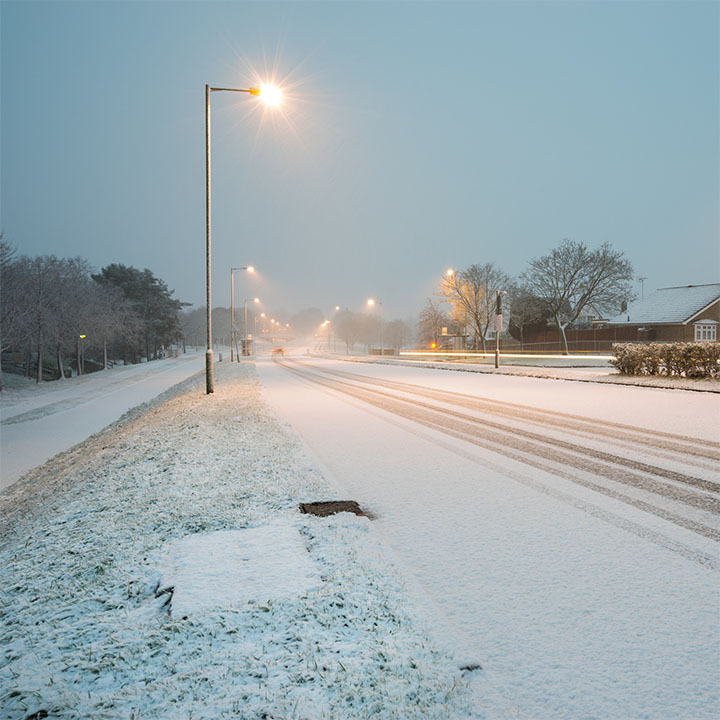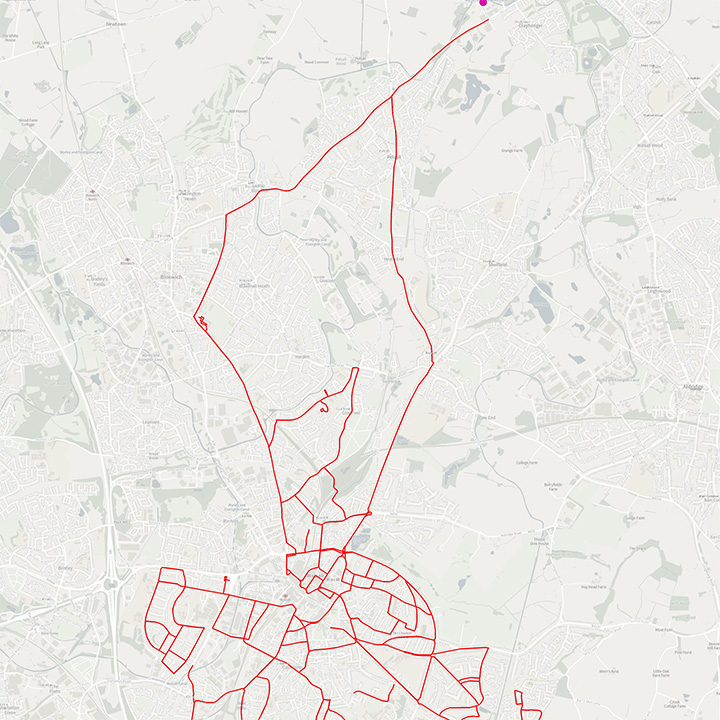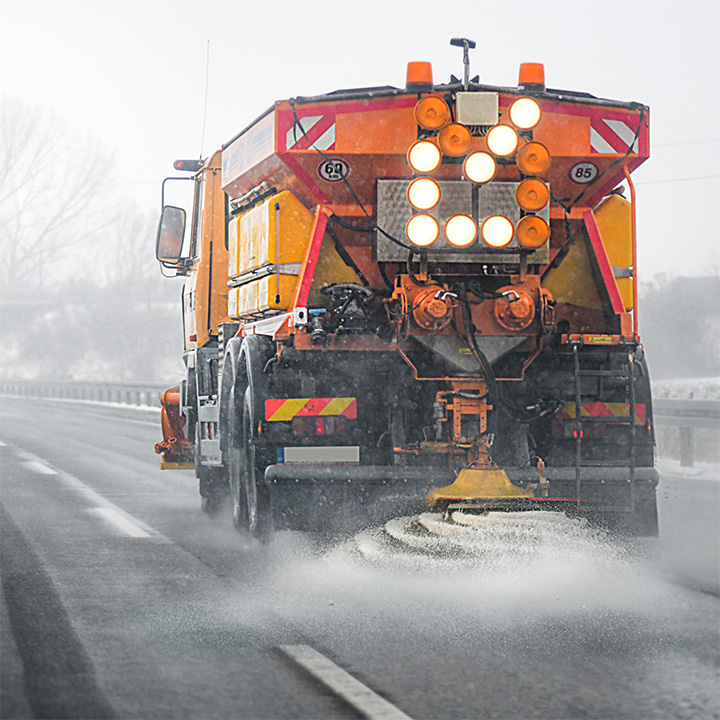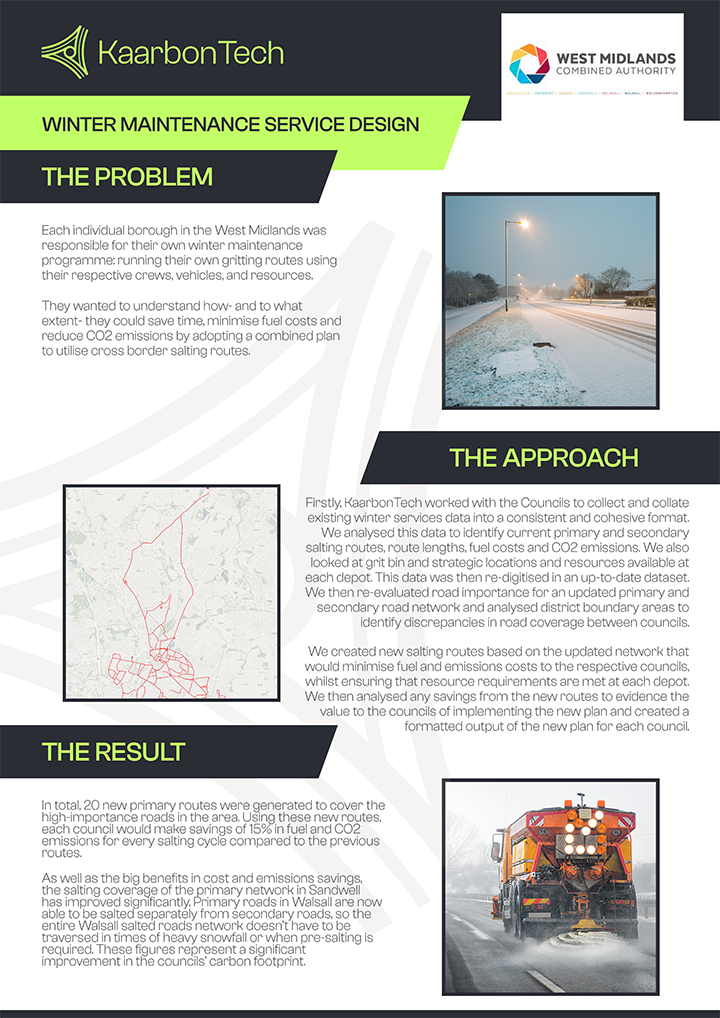Each individual borough in the West Midlands was responsible for their own winter maintenance programme: running their own gritting routes using their respective crews, vehicles, and resources.They wanted to understand how- and to what extent- they could save time, minimise fuel costs and reduce CO2 emissions by adopting a combined plan to utilise cross-border salting routes.

Firstly, KaarbonTech worked with the Councils to collect and collate existing winter services data into a consistent and cohesive format. We analysed this data to identify current primary and secondary salting routes, route lengths, fuel costs and CO2 emissions. We also looked at the grit bin, strategic locations, and resources available at each depot. This data was then re-digitised in an up-to-date dataset. We then re-evaluated road importance for an updated primary and secondary road network and analysed district boundary areas to identify discrepancies in road coverage between councils. We created new salting routes based on the updated network that would minimise fuel and emissions costs to the respective councils, whilst ensuring that resource requirements are met at each depot. We then analysed any savings from the new routes to evidence the value to the councils of implementing the new plan and created a formatted output of the new plan for each council.

In total, 20 new primary routes were generated to cover the high-importance roads in the area. Using these new routes, each council would make savings of 15% in fuel and CO2 emissions for every salting cycle compared to the previous routes.As well as the big benefits in cost and emissions savings, the salting coverage of the primary network in Sandwell has improved significantly. Primary roads in Walsall are now able to be salted separately from secondary roads, so the entire Walsall salted roads network doesn’t have to be traversed in times of heavy snowfall or when pre-salting is required. These figures represent a significant improvement in the councils’ carbon footprint.Despite significant cost savings being recognised for separate gritting of the primary network, we identified that no cost savings were likely to be gained by adopting a combined approach when the entire network needed to be salted.However, the adoption of the new segregated routes over the existing ones have led to an improvement in overall quality. Salting at district border locations was made more efficient by deduplicating several kilometres of road that was previously being salted by more than one council; as well as the addition of several hundred metres of cross-border road that was previously being missed.

"Walsall has made a 15% reduction in CO2 and cost savings due to the new optimised gritting routes, with productivity increasing at the same time.
"
